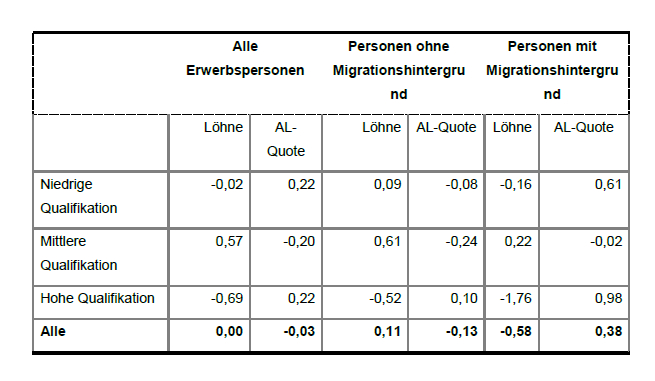Rebalancing The Scales: Reducing U.S. Dominance In Canada's Future

Table of Contents
Diversifying Trade Partnerships: Beyond the U.S. Market
Canada's over-reliance on the U.S. market presents a significant vulnerability. Reducing U.S. dominance requires a proactive approach to diversifying trade partnerships. This involves actively seeking and strengthening relationships with other global economies.
Exploring New Trade Agreements:
Expanding trade relationships beyond the U.S. is paramount for achieving Canada's economic independence. This includes leveraging existing agreements and pursuing new ones.
- Comprehensive and Progressive Agreement for Trans-Pacific Partnership (CPTPP): This agreement provides access to a vast Asian market, reducing reliance on the US and opening doors for Canadian businesses in rapidly growing economies. Potential challenges include navigating complex regulatory environments and overcoming logistical hurdles. Success stories from other CPTPP members, such as Vietnam's export growth, offer valuable lessons.
- Comprehensive Economic and Trade Agreement (CETA): CETA offers enhanced access to the European Union market, a significant opportunity for Canadian businesses in various sectors. Challenges might include differing standards and regulations, requiring adaptation and compliance.
- Latin American Trade Agreements: Exploring and strengthening trade relationships with Latin American nations opens up new markets and diversification opportunities. Potential challenges include political instability in certain regions and navigating varying trade policies.
Supporting Domestic Industries:
Boosting Canadian domestic industries is crucial for reducing reliance on US imports and fostering self-sufficiency.
- Government Incentives: Implementing targeted tax breaks, subsidies, and grants for Canadian manufacturers, technology companies, and agricultural businesses will stimulate growth and competitiveness.
- Investment in R&D: Increased funding for research and development across various sectors will foster innovation, create high-skilled jobs, and lead to the development of globally competitive products.
- Buy Canadian Campaigns: Promoting and prioritizing the purchase of Canadian-made products through public awareness campaigns and government procurement policies will strengthen domestic industries.
Strengthening Canadian Sovereignty in Key Sectors
Reducing U.S. dominance necessitates strengthening Canadian control over key sectors of the economy.
Energy Independence:
Over-reliance on the U.S. for energy poses a significant risk. Transitioning towards energy independence through diversified sources and infrastructure is crucial.
- Renewable Energy Investment: Significant investment in renewable energy sources such as solar, wind, and hydro power will reduce reliance on fossil fuels and create a more sustainable energy system.
- Energy Efficiency Improvements: Implementing policies and programs aimed at improving energy efficiency in homes, buildings, and industries will reduce overall energy consumption and reliance on external sources.
- Diversification of Energy Export Markets: Actively seeking new markets for Canadian energy exports beyond the U.S. will mitigate risks associated with relying on a single major buyer.
Technological Self-Sufficiency:
Dependence on U.S. technology companies presents a significant challenge. Investing in domestic technology development is essential for reducing this reliance.
- Government Funding for R&D: Increased government funding for research and development in key technological sectors, such as AI, biotechnology, and clean energy, will drive innovation and create high-paying jobs.
- Attracting and Retaining Skilled Workers: Implementing policies to attract and retain highly skilled workers in the technology sector is crucial for building a strong domestic tech industry.
- Promoting Canadian Tech Companies: Supporting and promoting Canadian tech companies globally through trade missions and international collaborations will foster growth and reduce reliance on foreign technologies.
Cultural Preservation and Identity: Countering American Cultural Influence
Maintaining a distinct Canadian cultural identity is crucial in reducing U.S. dominance.
Supporting Canadian Art and Media:
Investing in Canadian arts and media is vital to fostering cultural preservation and reducing the influence of American media.
- Government Funding for Arts and Culture: Increased government funding for Canadian film, television, music, and literature will support Canadian artists and creators.
- Promoting Canadian Content: Implementing policies to increase the broadcasting of Canadian content on television and radio will ensure greater visibility and appreciation for Canadian culture.
- Supporting Canadian Artists and Creators: Providing grants, tax incentives, and other forms of support to Canadian artists and creators will foster creativity and innovation.
Addressing Economic Asymmetries: Leveling the Playing Field
Addressing economic asymmetries between Canada and the U.S. is vital for reducing U.S. dominance.
Regulatory Independence:
Developing independent regulatory frameworks is crucial for preventing undue U.S. influence on Canadian policies and regulations.
- Strengthening Regulatory Bodies: Empowering and strengthening Canadian regulatory bodies will ensure that Canadian interests are prioritized in policy-making.
- Addressing Conflicts of Interest: Implementing mechanisms to identify and address potential conflicts of interest arising from close economic ties with the U.S. will maintain Canadian regulatory integrity.
- Transparent Regulatory Processes: Establishing transparent and accountable regulatory processes will build public trust and ensure that regulations serve the best interests of Canada.
Investing in Infrastructure:
Developing independent infrastructure projects is vital for reducing reliance on U.S. infrastructure.
- Investing in Transportation Networks: Investing in modern and efficient transportation networks, including roads, railways, and ports, will enhance connectivity within Canada and reduce dependence on U.S. infrastructure.
- Developing Communication Infrastructure: Investing in robust and reliable communication infrastructure, including broadband internet and 5G networks, will improve connectivity and ensure national security.
- Energy Infrastructure Development: Investing in energy infrastructure, such as pipelines and transmission lines, will enhance energy security and reduce dependence on U.S. infrastructure.
Conclusion: Rebalancing the Scales for a Stronger Canadian Future
Reducing U.S. dominance is not about isolationism, but about achieving a more balanced and sustainable economic relationship. Diversifying trade partnerships, strengthening Canadian sovereignty in key sectors, preserving Canadian culture, and addressing economic asymmetries are crucial steps towards building a more resilient and independent Canadian economy. By actively pursuing these strategies, Canada can rebalance the scales and secure a brighter future. Learn more about supporting Canadian businesses, contact your MP to advocate for diversification, and support policies promoting Canadian sovereignty. Rebalancing the scales is essential to ensuring a stronger, more prosperous, and culturally rich Canada for generations to come.

Featured Posts
-
 Space X Starship Testing Fixes After Back To Back Failures
May 29, 2025
Space X Starship Testing Fixes After Back To Back Failures
May 29, 2025 -
 Late Game Heroics Jefferson Softball Defeats Musselman
May 29, 2025
Late Game Heroics Jefferson Softball Defeats Musselman
May 29, 2025 -
 Cafu Reveals His Real Madrid Mvp Mbappe And Vinicius Overlooked
May 29, 2025
Cafu Reveals His Real Madrid Mvp Mbappe And Vinicius Overlooked
May 29, 2025 -
 Doha Ports 2024 Growth Mwani Qatars Success Story
May 29, 2025
Doha Ports 2024 Growth Mwani Qatars Success Story
May 29, 2025 -
 Norwalk Spring Sports Roundup April 22nd 25th Games
May 29, 2025
Norwalk Spring Sports Roundup April 22nd 25th Games
May 29, 2025
Latest Posts
-
 Bodensee Wasserstand Steigt Er Oder Sinkt Er
May 31, 2025
Bodensee Wasserstand Steigt Er Oder Sinkt Er
May 31, 2025 -
 Erste Pflegekonferenz Bodenseekreis Zentrale Themen Und Ergebnisse
May 31, 2025
Erste Pflegekonferenz Bodenseekreis Zentrale Themen Und Ergebnisse
May 31, 2025 -
 Die Erste Pflegekonferenz Bodenseekreis Ein Voller Erfolg
May 31, 2025
Die Erste Pflegekonferenz Bodenseekreis Ein Voller Erfolg
May 31, 2025 -
 Entwicklung Des Bodensee Wasserstands Fakten Und Analysen
May 31, 2025
Entwicklung Des Bodensee Wasserstands Fakten Und Analysen
May 31, 2025 -
 Teilnahme An Der Ersten Pflegekonferenz Bodenseekreis
May 31, 2025
Teilnahme An Der Ersten Pflegekonferenz Bodenseekreis
May 31, 2025
